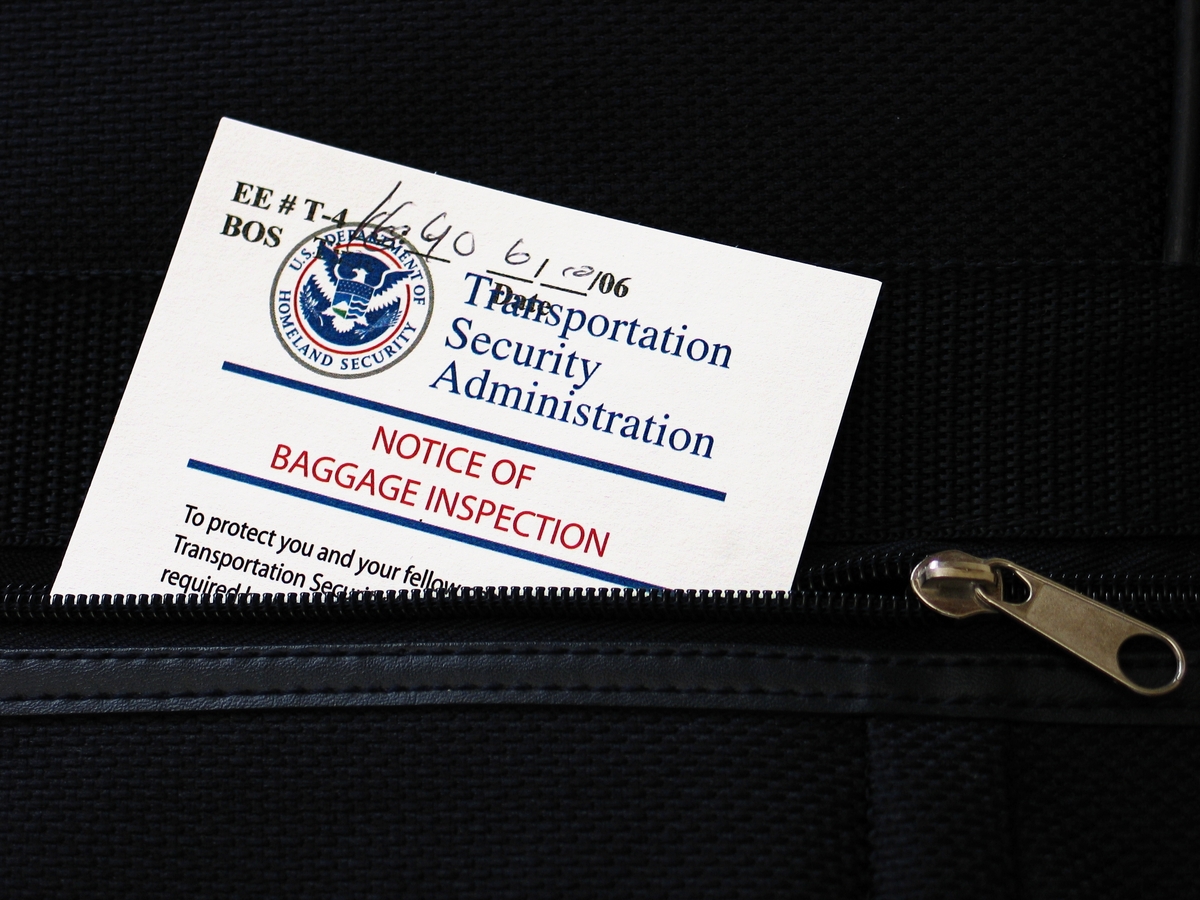
As travelers, we are accustomed to meticulously planning what we can and cannot bring in our carry-on luggage, ensuring compliance with airline regulations and security protocols. However, amidst the focus on carry-on restrictions, it’s easy to overlook the limitations imposed on checked baggage. Surprisingly, there is a long list of TSA prohibited items that are strictly banned from being stowed away in the checked compartment of a plane. So, before you zip up your suitcase and bid farewell to your checked bag, let’s explore what items must remain out of sight during your journey.

What can you take on a plane? TSA prohibited items
When it comes to packing for a flight, we are often well-versed in the restrictions placed on carry-on items, particularly the infamous 3-1-1 liquid rule. Yet, as we organize our carry-ons, it is crucial not to ignore the contents of our checked baggage. While it may seem like a convenient place to store bulkier or less essential items, several objects should never be put in your checked baggage. From flammable materials to certain liquids to popular foods, the restrictions are broad and varied. These are just a few of TSA prohibited items to consider before packing your suitcase.
1. Wrapped presents
Wrapped presents always run the risk of being flagged by security. These wrapped gifts can trigger suspicion or require additional screening, leading to delays and potential damage to your wrapped items. Additionally, if security officials cannot identify the contents of a wrapped gift, they may need to unwrap it entirely.
2. An abundance of cash
Packing an abundance of cash in your checked baggage is ill-advised for several reasons, particularly concerning security and potential legal complications. While no specific TSA regulations limit the amount of cash you can carry domestically, travelers entering the U.S. must declare amounts exceeding $10,000 to customs officials. However, regardless of the amount, carrying a significant sum of cash can attract attention from TSA agents, who have the authority to question you about the source and purpose of the money.

3. E-cigarettes and vapes
E-cigarettes and vapes have lithium-ion batteries, which have been known to pose fire hazards, especially when subjected to changes in air pressure and temperature during flight. Because of this, they should not be packed in your checked bags. However, e-cigarettes and vapes are permitted in your carry-on baggage, where they can be safely managed throughout the flight.
4. High-proof alcohol
Many people believe that there are no prohibited liquids in checked baggage. However, high-proof alcohol is one of the few exceptions. High-proof alcohol should not be packed in your checked baggage due to its flammability. Most alcohol, including wine and hard liquor, can be packed in checked luggage as long as it remains in its unopened retail packaging. However, anything over 140 proof (70% alcohol) is prohibited in checked baggage due to its increased flammability.
5. Coffee beans
Unfortunately, you may want to leave the coffee beans behind. Smugglers have been known to use coffee to conceal illicit substances, prompting heightened scrutiny from security personnel. A checked bag containing a large quantity of coffee may attract suspicion and be subject to swab tests by airport security.
6. Fireworks
Fireworks pose significant safety risks and should never be included in your checked baggage. These explosives are one of the most highly-enforced TSA prohibited items as they endanger the safety of airline staff and passengers.
7. Ammunition
While the TSA permits travelers to pack their legally owned guns in checked baggage, stringent regulations govern the transportation of ammunition. The TSA and FAA allow ammunition up to .75 caliber and shotgun shells of any gauge, but exceeding these limits or failing to declare the ammunition can result in flagged luggage. Additionally, certain types of ammunition, such as black powder, smokeless powder, primers, percussion caps, or homemade powder and ball loads for muzzle loading, are strictly prohibited by the FAA.

8. Meat and produce
Due to strict regulations imposed by the U.S. Customs and Border Protection, meat and produce should not be packed in checked baggage, especially when returning from international trips. While domestic travelers generally have the freedom to pack food items in their checked bags, international travelers must exercise caution. The CBP prohibits the importation of most meat, fruits, and vegetables to safeguard against the introduction of pests and diseases into the United States.
9. Cordless curling irons
Cordless curling irons, equipped with butane-powered cartridges, should never find their way into your checked bag due to the risk of explosion mid-flight. To mitigate these risks, it’s smart to opt for a traditional corded curling iron instead.

TSA: what can I bring?
While TSA primarily focuses on screening carry-on luggage, they also have the authority to inspect checked baggage to ensure compliance with aviation security regulations. Because of this, it is important to be aware of all of the TSA prohibited items.
If you aren’t sure whether or not an item is allowed in your checked baggage, you can search for the object on the TSA website or download the MyTSA App.



